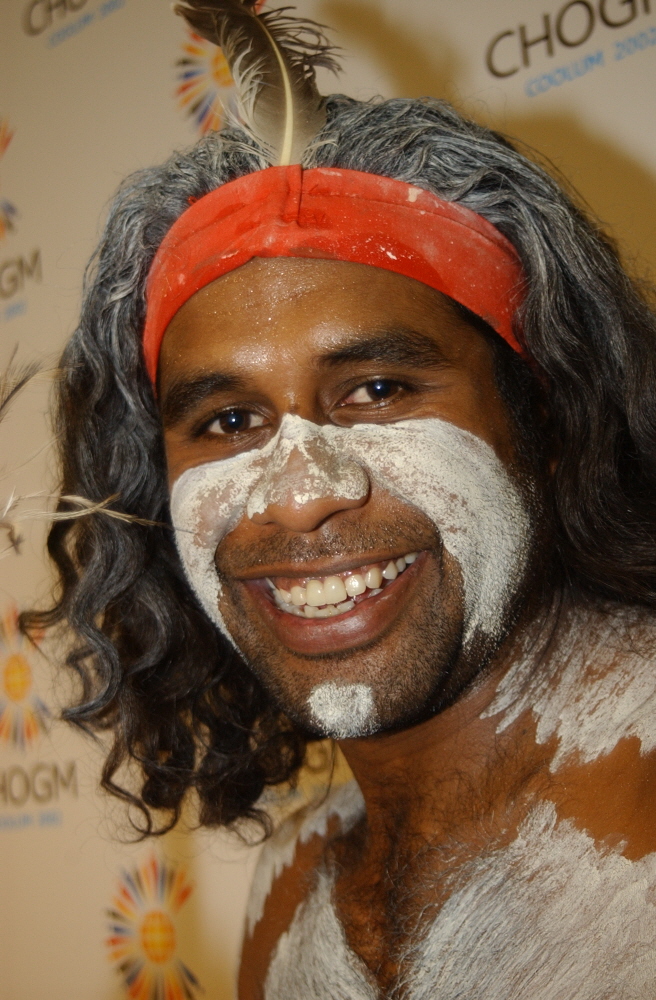"An inclusive Australian Constitution free from racism"
September 2nd, 2012 The Australian Constitution is desperately outdated and sets the tone for discrimination and racism to be perpetrated under the law, says Francis Ventura, 22, a Commonwealth Correspondent from Melbourne.
The Australian Constitution is desperately outdated and sets the tone for discrimination and racism to be perpetrated under the law, says Francis Ventura, 22, a Commonwealth Correspondent from Melbourne.
Australia is a modern, accepting and multicultural nation. Everybody accepts that, apart from an unfortunate few outside the moderate and fair thinking mainstream.
A country’s Constitution is best described as the document setting out the legal parameters upon which the institutions of government, and thus the state, can be built.
Therefore, it is absolutely necessary that the Constitution be reflective of the values held by the people on whose behalf it represents.
The Australian Constitution however still contains elements that are more symbolic of the late 19th and early 20th century Australia rather than the nation now heading into the 21st century and beyond.
The most prominent change since federation is that our nation is now a culturally diverse yet socially cohesive nation. We value multiculturalism, meaning that we respect our differences and celebrate the things that unite us as Australians, no matter our religion, ethnicity or skin colour. Sadly, some in the community have yet to grasp the beauty of our society and still openly yearn for openly discriminatory immigration and domestic policies; however I hold an optimistic view of the future.
Section 25 states that ‘For the purposes of the last section, if by the law of any State all persons of any race are disqualified from voting at elections for the more numerous House of the Parliament of the State, then, in reckoning the number of the people of the State or of the Commonwealth, persons of the race resident in that State shall not be counted’.
As renowned Professor of Law George Williams points out, this was reflected in practice by the States who for decades after Federation refused to allow Aboriginals to vote. Section 51 states that ‘The Parliament shall, subject to this Constitution, have power to make laws for the peace, order, and good government of the Commonwealth with respect to: – (xxvi) The people of any race, for whom it is deemed necessary to make special laws’.
On this point, Professor Williams says that the idea in 1901 behind this Section was that ‘laws were needed to discriminate against certain races, such as by limiting their choice of occupation or where they could live so as to limit their contact with whites. As stated by the nation’s first prime minister, Edmund Barton, the power was necessary to ”regulate the affairs of the people of coloured or inferior races who are in the Commonwealth”.
It is clear that these two Sections are not only discriminatory, but run completely contrary to our values as Australians. We are not a nation that considers certain people to be ‘inferior’ based solely on their race, we are all equal.
Racism is not simply a minor issue in Australia. As Federal Race Discrimination Commissioner Dr Helen Szoke pointed out, 85% of respondents in a survey conducted by the Australian Human Rights Commission believed that racism is still a major issue in Australia.
In addition to the admirable and long overdue efforts to recognise our First Australian brothers and sisters, the Indigenous people of Australia, into the Australian Constitution, we need to make it clear that this would be strengthened by removing the racist elements within the Constitution.
Constitutional change is necessary for our successful engagement with Asia and the wider world. Of course, there are a range of other factors such as good international citizenship that will foster that engagement, but we simply cannot seek to be a positive player in the Asian Century and reap the benefits that will inevitably flow from it if we continue to retain racist elements within our national charter.
More importantly, we can’t progress as a prosperous and peaceful pluralistic society if a simple act to remove two racist Sections within the Constitution doesn’t reach consensus. An important question to consider is this: if these two Sections didn’t exist, would we be seeking to have them included? The vast majority of Australians would be repulsed at the idea.
We are a proud nation and are mature enough to have a robust debate about the future direction of our country. We are also known for our spirit of ‘a fair go’ and to not give up in the face of a challenge. While Constitutional change is never easy, I’m confident that all Australians will come together and support an inclusive Constitution. That would send a powerful message to the world and, more importantly, unite us here at home as we pro-actively advance a harmonious society.
If you’d like to join the effort for an inclusive Australian Constitution free from racism, please sign and share the petition: http://www.change.org/petitions/support-an-inclusive-australian-constitution
…………………………………………………………………………………………………………………
About me:
“G’day! My name is Francis Ventura and I am currently studying Politics and International Relations at the University of Melbourne. I am also the youth director of the Australian Republican Movement.
“As Melbourne is the sporting capital of the nation, I have a keen interest in cricket and Australian Rules football. I also love exploring Australia’s beautiful environment. After my studies I would like to dedicate my life to human rights, with a focus on protecting civilians living in war zones or under totalitarian regimes.”
…………………………………………………………………………………………………………………
Opinions expressed in this article are those of the author and do not necessarily represent the views of the Commonwealth Youth Programme. Articles are published in a spirit of dialogue, respect and understanding. If you disagree, why not submit a response?
To learn more about becoming a Commonwealth Correspondent please visit: http://www.yourcommonwealth.org/submit-articles/commonwealthcorrespondents/
…………………………………………………………………………………………………………………




